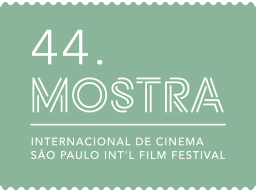Homenagens
HUMANITY AWARD - FREDERICK WISEMAN
THE GREATNESS OF BANALITY
One of the most important and authentic directors working today, Frederick Wiseman has dedicated himself to documentary filmmaking for over five decades. In City Hall (2020), which will be screened at the 44th Mostra, Wiseman, 90, returns to the great theme of his career: social institutions and their relationship with their cities and communities.
In the new film, the director goes inside the Boston City Hall to create a visual essay about the meanings of democracy. The city’s mayor, Marty Walsh, is an advocate for the environment, immigrants’ rights, and gender equality, while the employees maintain what we might call a “public spirit”, to use a term that is at the same time generic and precise.
Like many of Wiseman’s previous works, City Hall helps us understand the United States by taking a unique look at everyday life and at people who work at institutions. Wiseman is from a Jewish family and was born in Boston in 1930. After serving in the army, he lived in Paris for a few years. Upon returning to the United States, he taught law before finding his vocation in filmmaking.
Wiseman made his film debut as a producer in 1963. But it didn’t take very long for him to pick up the camera to investigate his country. His first documentary, Titicut Follies (1967), portrays the lives of patients at Bridgewater State Hospital, an institution for prisoners with mental illness. The film can be understood as a letter of intent, as it reveals many elements that would become central to his career in both themes and style.
Although Wiseman himself does not like to be defined by the concepts of observational cinema or cinéma vérité, it is a fact that Titicut Follies was a forerunner of a certain way for the camera to relate to what is being filmed. Echoes of Wiseman’s debut reverberate not only in films that were released immediately after but also in what is being produced to this day.
Since then, Wiseman has been creating an x-ray of American institutions. His camera has taken us to schools, libraries, universities, public spaces, government agencies, zoos, boxing gyms, and many other places that are part of the imagery and routine of everyday life.
He consciously built a filmography that registers and maps the symbols that surround us and are somewhat definitive to our contemporary identity.
In this process, the filmmaker wittily and patiently turns himself to the human gestures that permeate the world of each of his films. His interest is not in these places as institutional or bureaucratic totems, but in the people who occupy them. And the discovery of what is human can happen through speech, but also through faces, gestures, and movements.
Wiseman’s meticulous and patient camera, which never seems to interfere with what is happening in front of him, knows how to capture the greatness of the present and the seemingly banal. The 48 documentaries he has made to date, both for cinema and American public television, have won prizes at the world’s most important film festivals and earned him an honorary Oscar in 2017.
Besides screening City Hall, this year’s Mostra will give Wiseman the Humanity Award for his contribution to cinema and to our understanding of contemporary times.

